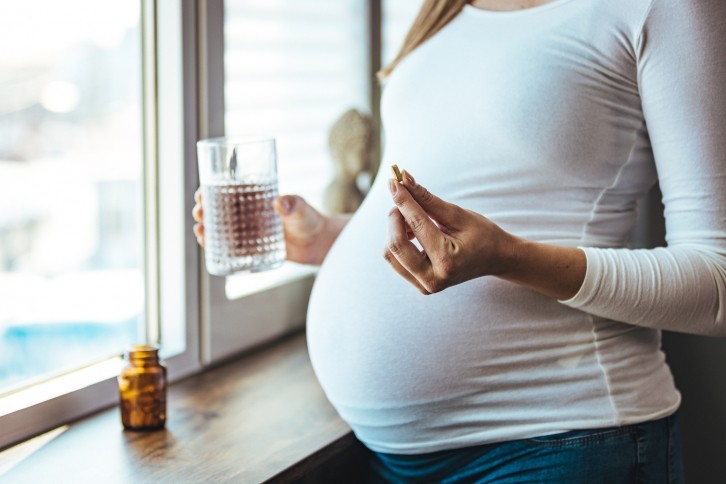Researchers find vitamins E and B12 influence pregnancy complications

The study, published in the journal Frontiers in Nutrition and led by researchers from the Shanghai University of Traditional Chinese Medicine, conducted Mendelian randomization (MR) analysis and revealed a prominent link between high levels of circulating vitamin E and lower risk of spontaneous abortion (SA).
Furthermore, an increased genetic propensity for higher circulating levels of vitamin B12 conferred a protective effect against stillbirth (SB). However, no association between folate and preterm birth (PTB), SA, or SB was observed. None of the minerals or vitamins triggered the onset of gestational hypertension (GH), PTB, or gestational diabetes mellitus (GDM).
By establishing the causal relationship between circulating vitamins and pregnancy complications, this study highlights the potential benefits of nutrition-based strategies to prevent adverse maternal and neonatal health outcomes.
Furthermore, it advocates the need for early micronutrient screening and preventive measures to reduce pregnancy complications. These findings could guide clinicians while prescribing proper micronutrient supplementation to prevent pregnancy complications.
Role of Micronutrients in Pregnancy Complications
Evidence concerning the effectiveness of micronutrients in reducing pregnancy complications is inconclusive. For instance, a meta-analysis indicated that B12 deficiency increases the risk of PTB, while a randomized-controlled trial (RCT) found no significant benefits from multivitamin supplementation.
Although a large body of research has shown that increased folate intake from supplements reduces the risk of SA, some studies argue that vitamin supplements do not have any influence on the risk of early pregnancy loss. These contradictory findings could be attributed to demographic and methodological differences.
Study Details
A two-sample MR method was used to infer the causal association between circulating micronutrients and pregnancy complications. Genome-wide association study (GWAS) data was sourced from the GWAS Catalog consortium and PubMed database to obtain relevant information on minerals and vitamins.
A total of five prevalent pregnancy complications, i.e., GDM, GH, SA, PTB, and SB, were identified from the UK Biobank and FinnGen consortia data. The causal effects of micronutrients were determined using the inverse variance weighted (IVW), MR-Egger, and weighted median (WM) methods.
Although the exact pathophysiological mechanisms concerning the effect of vitamin E on SA are not completely understood, scientists have proposed several hypotheses.
A zebrafish model study indicated that vitamin E deficiency increases lipid peroxidation in phosphatidylcholine-docosahexaenoic acid (DHA-PC), which causes an increase in betaine and a decrease in choline production. This results in the disruption of the methionine cycle and one-carbon metabolism associated with vitamin B12 and folate, triggering neural tube defects and other pregnancy complications by reducing DNA methylation and synthesis, the authors wrote.
In the future, the findings of this study must be validated using well-designed RCTs and larger GWAS datasets.
Source: Frontiers in Nutrition
doi.org/10.3389/fnut.2024.1334974
“Association of circulating minerals and vitamins with pregnancy complications: A Mendelian randomization study”
Authors: Xie Y et al.











